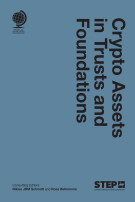Protecting against licensor insolvency
24 March 2015

Author bio coming soon
Corporate partner Rhys Llewellyn at Harbottle & Lewis LLP explores the impact of insolvency on IP licence arrangements.
Rhys Llewellyn coauthored the UK chapter in Globe Law and Business's title on Licences and Insolvency. He is a corporate partner at Harbottle & Lewis LLP.
A licensor’s insolvency can have a serious impact on a licensee which relies on the use of the licensor’s IP rights to carry on its business. However, insolvency risks are often overlooked in the rush to put licences in place at the start of a new commercial relationship. This article highlights some of the issues that licensees should consider when acquiring rights to use IP rights in the context of the insolvency regime in England and Wales.
Insolvency
The main insolvency procedures available to English and Welsh companies are administration and liquidation. An insolvency practitioner will be appointed as an administrator or liquidator (as appropriate) of the insolvent company and will usually look to sell the company’s assets to raise funds to pay creditors. With the emergence of more technology businesses, IP rights are increasingly among the most valuable assets that companies possess and administrators and liquidators have wide-reaching powers to deal with them.
Impact of insolvency on licence arrangements
The administration or liquidation of a licensor will not of itself affect the ownership of any IP rights owned by that company; nor will it result in the termination of any licence of IP rights that the company may have granted to licensees. However, where a licensor enters administration or liquidation, licensees can suddenly find themselves exposed due to a number of issues that arise in the insolvency context. For example:
- a purchaser, in good faith for valuable consideration without actual or constructive knowledge of a licence, may take IP rights free of any licence, meaning that a licensee may lose either its ability to use the IP rights or the benefit of any exclusive use;
- the licensor may be unable to continue to perform its obligations. This may cause issues where, for example, the licensor is obliged to pay registration fees or is obliged to pay third parties for the continued use of the rights (eg, where the licensor is itself a licensee and is granting a sub-licence);
- the liquidator of a licensor may apply to court to disclaim onerous obligations under a licence. These could include obligations to pay moneys (eg, registration fees) or to incur liabilities in relation to future development of the licensed IP rights; or
- if proper value has not been paid for the licence, there is a risk that its grant may be challenged as a transaction at an undervalue.
Mitigating risks
The approach that a licensee takes to a licensor’s insolvency, both at the time arrangements are being implemented and after the onset of insolvency, has a major impact on its ability to continue using the licenced IP rights.
Steps taken at the outset are likely to provide the most protection, although the respective bargaining power of the parties will dictate what is possible. Some of the issues that licensees seeking protection from a licensor’s insolvency may want to consider include:
- determining whether it is possible to acquire underlying ownership of the IP rights instead of licensing them (possibly with a licence back of rights if needed by the licensor or provision for rights to be transferred back later);
- requesting the transfer ownership of the IP rights to be licensed to a non-trading subsidiary of the rights owner, which would then grant the licence to the licensee (the thinking behind this being that if the subsidiary remained non-trading, then it would be unlikely to face insolvency issues);
- requesting an option to purchase the IP rights from the licensor if certain events occur which may indicate pending insolvency. The timing and price payable on exercise will need careful consideration to avoid any acquisition via an option being set aside as an undervalue transaction (which is possible unless market value consideration is paid) or as being void as made after the commencement of the company’s winding-up;
- taking a fixed charge over the IP rights as security for the licensor’s obligations. This will restrict the ability of any administrator or liquidator to deal with the IP rights and allow the licensee to appoint its own receiver;
- including onerous obligations in a separate agreement to the main licence, to reduce the risk of a disclaimer of the main licence by a liquidator; and
- where the licensed IP rights include patents, registered trademarks and/or registered designs, ensuring that the licence, once granted, is properly registered at the UK Intellectual Property Office and/or, where rights are registered on an EU-wide basis, at the Office for Harmonisation in the Internal Market. Although registration will not affect the ability of administrators or liquidators to deal with these IP rights, any third party purchasing the rights will be treated as having knowledge of any registered licences.
Licensees wishing to protect their interests in licensed IP rights must act quickly if they become aware that an administrator or liquidator has or may be appointed in respect of the licensor. Licensees must maintain regular contact with their licensors to ensure that they have the best chance of spotting insolvency issues as early as possible. If an administrator or liquidator is appointed, licensees should notify it of the existence of their licence and potentially register their interest in acquiring the IP rights (potentially at a lower price than would otherwise have been payable in the absence of the licensor’s insolvency). Speed is of the essence, as an administrator or liquidator will usually want to dispose of assets quickly in order to generate funds and minimise any damage to goodwill.
It is undoubtedly better to tackle insolvency issues head on before they arise rather than waiting until problems have emerged. This means considering issues at the negotiation stage, actively monitoring the licensor’s ongoing solvency, ensuring that registrations are up to date and reviewing existing arrangements to ensure that they remain robust in an insolvency scenario. It is not unusual for licensees to face up to insolvency issues only once the licensor has become insolvent, but by this stage it is likely to be too late to do anything about it.













Any comments - send us an email